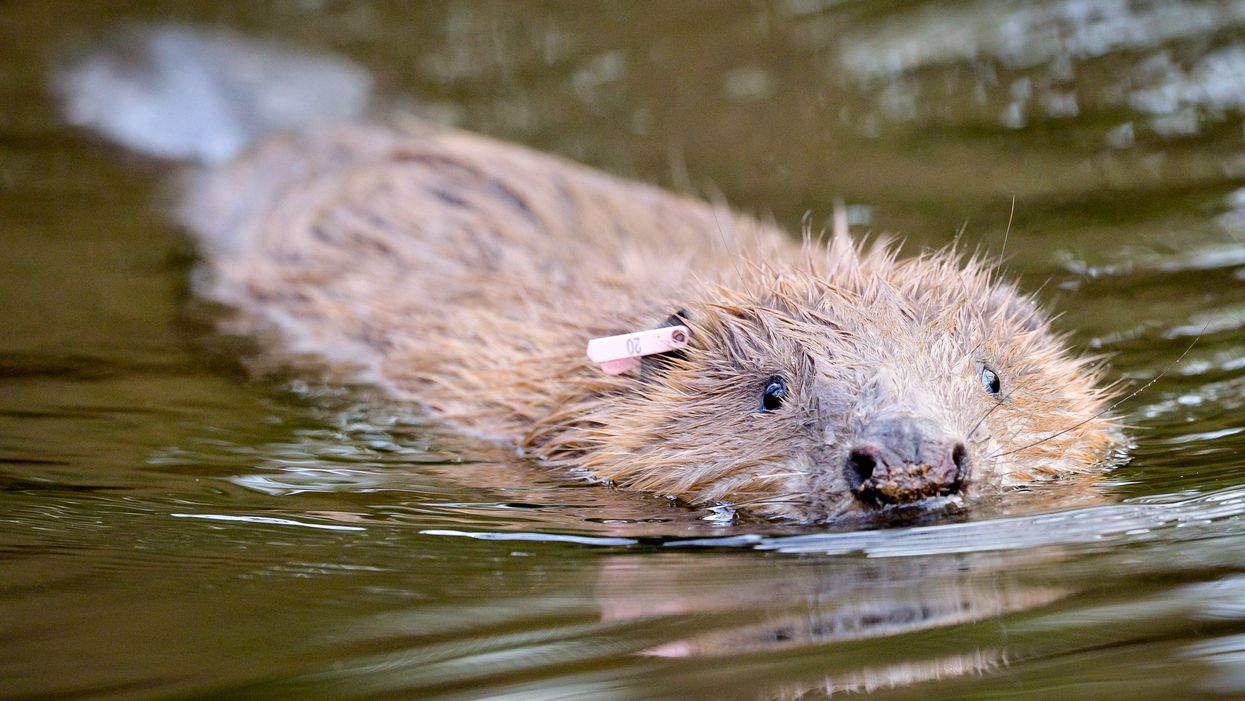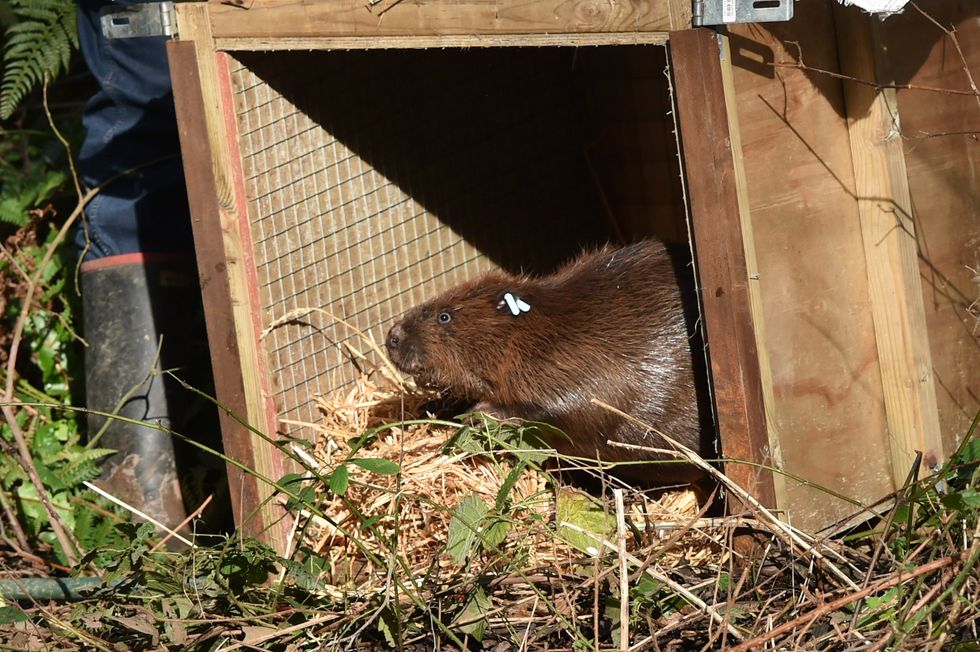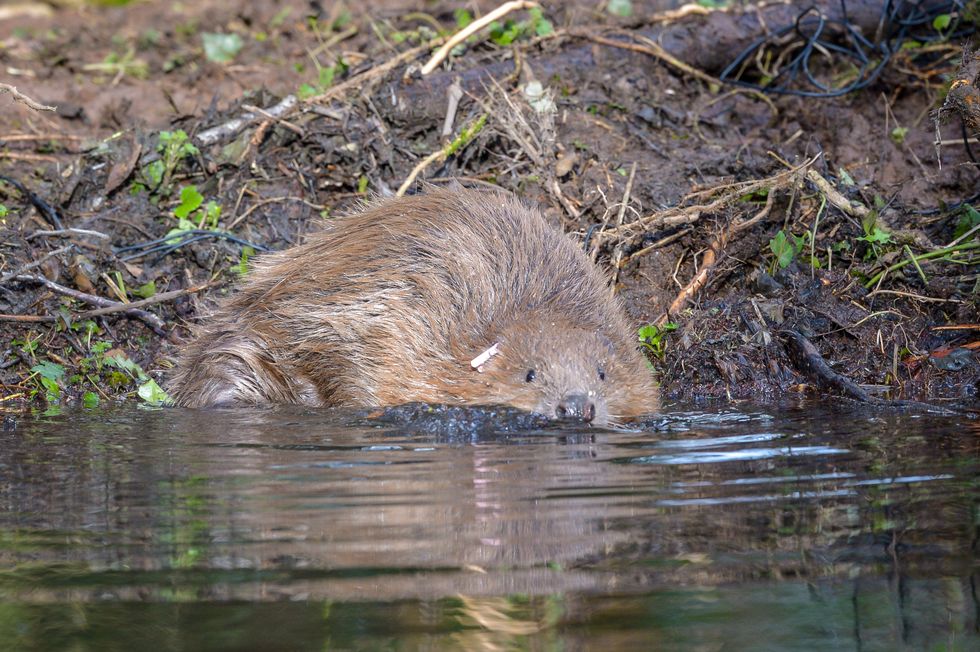
Beavers will be released into the wild under Government proposals to support a “cautious” return of the semi-aquatic mammals to English rivers.
The native animals are also set to be given legal protection in England, making it an offence to deliberately capture, kill, disturb or injure them, or damage their breeding sites or resting places, as part of efforts to support their recovery.
Under plans being put out for consultation, applications for licences to release beavers into the wild would need to meet certain criteria, including local buy-in and ensuring support for landowners and river users is in place.
Beavers are seen as nature engineers who restore wetland habitats through dam-building and felling trees, slowing, storing and filtering water in the landscape, which attracts other wildlife and reduces flooding downstream.
The species was hunted to extinction in Britain in the 16th century for their fur, glands and meat.
They have already made something of a return to England, and are found wild on the River Otter in Devon, the site of a successful official trial reintroduction, as well as on other rivers due to illegal releases or escapes.
They have also been introduced into enclosures in a number of English counties to help manage flooding and create habitat for other wildlife.
Conservationists back the return of beavers to restore wetland habitats, boost other wildlife, curb climate impacts such as increased flooding, and support eco-tourism – although landowners have raised concerns about the impact locally.
The Environment Department (Defra) is launching a 12-week consultation on Wednesday on further reintroductions into the wild and management of existing wild populations in England, which Environment Secretary George Eustice said would take a cautious approach.
Mr Eustice said: “We are committed to providing opportunities to reintroduce formerly native species, such as beavers, where the benefits for the environment, people and the economy are clear.
“Today marks a significant milestone for the reintroduction of beavers in the wild, with the launch of the Government’s consultation on our national approach and management of beavers in England.
“But we also understand that there are implications for landowners, so we are taking a cautious approach to ensure that all potential impacts are carefully considered.”
Government conservation agency Natural England will play a key role in licensing releases and managing beavers.
Its chairman Tony Juniper said the launch of the consultation “marks an important and positive moment for the future of these wonderful animals in England”, as he encouraged everyone to respond to help shape the future of wild beavers in a way that reflected as many perspectives as possible.
The consultation seeks views on potential future releases into the wild, current and future releases into enclosures, and management of beaver activity or impacts in the wild, including on the River Otter and where other free-living beavers have made their homes.
It proposes that licences for reintroductions into the wild would need to meet criteria including demonstrating positive stakeholder engagement and local buy-in and proof that a comprehensive assessment has been undertaken of impacts on surrounding land, waterways, infrastructure, habitats and species.
Eva Bishop, Beaver TrustWe hope to see beavers accepted back in the countryside like any other native wild animal
Projects must also ensure that support for landowners and river users is put in place, under the proposals.
The Government has also announced plans to give beavers legal protection in England, which would come into force in 2022.
Rob Stoneman, from The Wildlife Trusts said: “There’s an impressive body of evidence to show how beavers can help to improve the quality of rivers and wetlands and the wildlife they support, improve water quality, and reduce flood risk, as well as contributing to carbon storage.
“Beavers are fabulous – they can do all of this free of charge.”
But he said: “Beavers are wild animals – and as their populations expand their activities will need managing,” adding the trusts would continue to play a pivotal role in the return of beavers in a responsible manner.
Eva Bishop, from the Beaver Trust said the announcement was an important step forward for beavers’ recovery in Britain and it was vital to form a consensus on their return.
“We hope to see beavers accepted back in the countryside like any other native wild animal – particularly as they have a role to play in nature’s recovery and British wildlife resilience in the climate emergency,” she said.
Professor Alastair Driver, director of Rewilding Britain, said beavers could help rewild the countryside – which was an important tool to tackle the nature and climate emergencies.
“Beavers can do much of that rewilding completely free of charge in river and wetland environments – so it really is a ‘no-brainer’ that with the right local community support and management strategies in place, we should return them back where they belong in our catchment.”
The measures would apply to England. Scotland has also seen the return of beavers into the wild, with the Scottish Government giving them legal protection in 2019, although they can be killed under licence if they damage farmland.
Richard Bramley, chairman of the National Farmers’ Union environment forum, said: “It is positive that any reintroduction will be strictly licensed by Natural England and it is important any approved licensing includes a long-term management plan, developed with local farmers and backed with adequate funding.
“Any impact on a farmer’s ability to produce food needs to be included as part of a full impact assessment carried out before any licence is issued.”
He warned that beaver reintroductions could have negative impacts such as damaging trees and impeding farmland drainage, and said adequate compensation must be paid if there are financial impacts on farmers, and an exit strategy must be in place should major issues occur.















